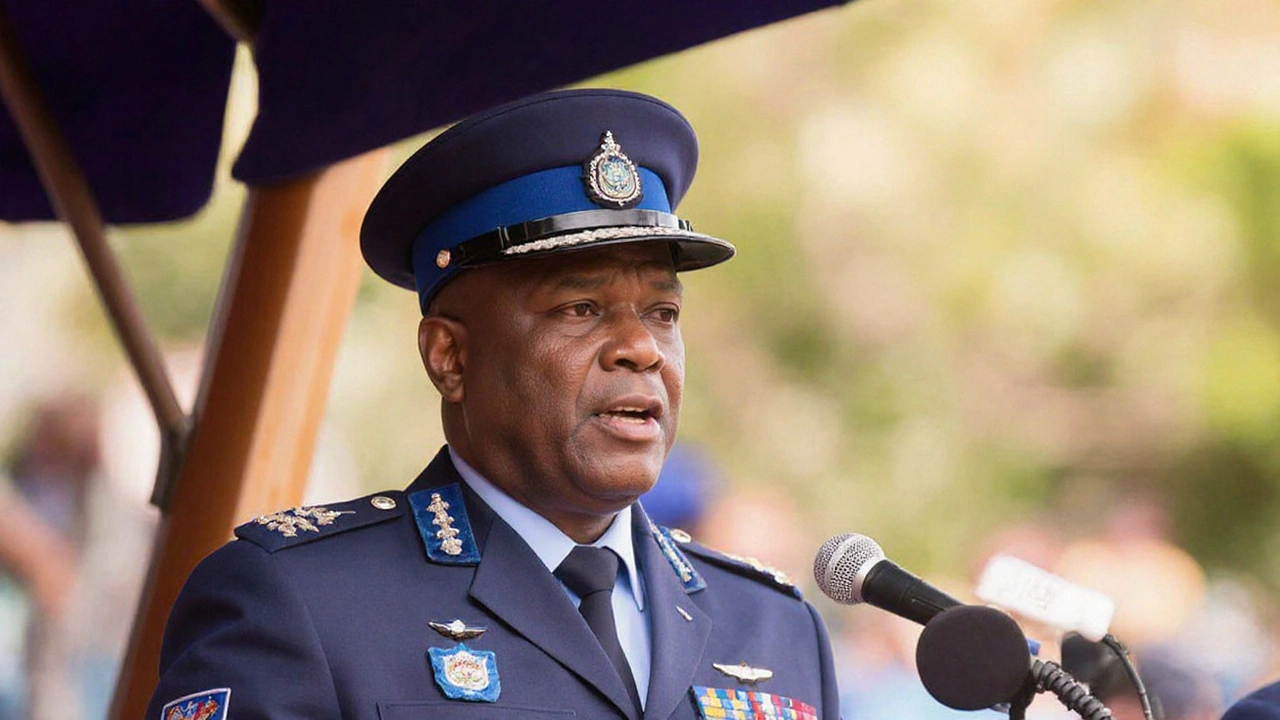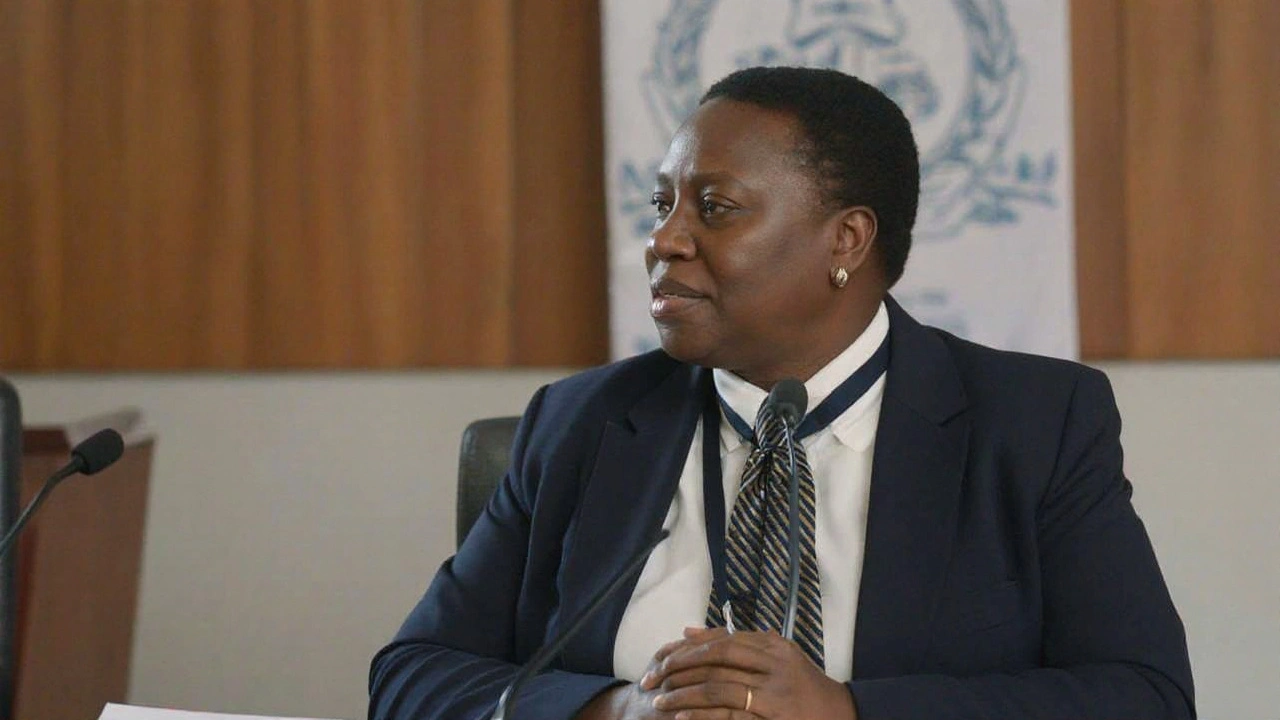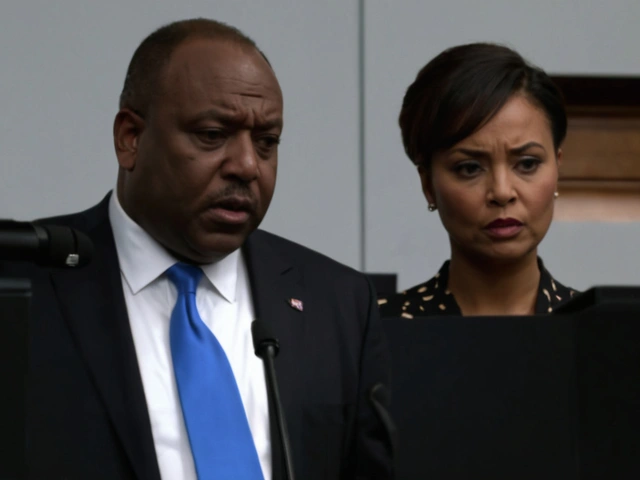National Police Commissioner Fannie Masemola spent two intense days in front of the Madlanga Commission, laying out a series of allegations that could upend Police Minister Senzo Mchunu’s standing in the cabinet. The core of the scandal centres on a directive that ordered the disbandment of the KwaZulu‑Natal Political Killings Task Team (PKTT), a unit tasked with probing politically motivated murders across the province. Masemola’s account suggests the order was not merely a policy shift but an illegal move that flouts both statutory law and the constitution.
The Disbandment Dispute
According to Masemola, Minister Mchunu handed down an “unlawful instruction” to dissolve the PKTT. She described the order as a direct breach of the Minister’s statutory powers, a claim bolstered by Major General Marga van Rooyen, head of governance, legislation and policy at the police legal services division. Van Rooyen testified that the minister lacked any legislative authority to terminate the task team, rendering the directive void from a legal standpoint.
The commissioner also highlighted the constitutional implications. Section 253 of the South African Constitution mandates that the police investigate crime, a duty that includes politically charged offences. By ordering the shutdown of a unit explicitly created to address political killings, Mchunu’s move appears to run counter to that constitutional mandate.
Masemola did not stop at legal arguments. She painted a picture of a “frosty working relationship” with the minister, marked by differing views on the very existence of political crimes post‑1994. Mchunu allegedly dismissed investigations into political killings as mere “murders,” implying that such cases no longer warrant a specialised response. This stance, Masemola argued, undermines the rationale for the PKTT and threatens the transparency of investigations into politically sensitive deaths.
Despite her objections, Masemola eventually complied with the directive, opting for a phased wind‑down rather than an immediate shutdown. Her compliance, she says, was a pragmatic attempt to mitigate disruption while still signalling disagreement with the order.

Political Fallout and Systemic Risks
The testimony has immediate political reverberations. If the commission validates Masemola’s claims, Mchunu could face calls for dismissal or at least a reshuffle of his portfolio. The allegations suggest a minister acting beyond his legal remit, potentially compromising the integrity of South Africa’s criminal justice system.
Beyond the personal drama, several broader concerns emerge:
- Undermining specialised units: Eliminating the PKTT could leave a gap in the nation’s capacity to investigate politically motivated crimes, eroding public confidence.
- Political interference: The case hints at a wider network of individuals possibly influencing policing decisions for political gain.
- Constitutional conflict: Ignoring Section 253 may set a precedent where ministerial orders override constitutional duties.
- Targeted case focus: Mchunu’s apparent preoccupation with high‑profile cases, such as the murder of youth league treasurer Sindiso Maka, raises questions about selective enforcement.
The commission also heard that the PKTT, under General Duisani Kumalo, had achieved notable successes in solving high‑profile killings. Masemola suggested that the unit’s effectiveness may have made it a target for forces wishing to mute investigations into politically sensitive matters.
Finally, the testimony underscores a troubling narrative: senior police officials possibly colluding with political actors to undermine independent investigative units. If true, this could signal a systemic erosion of checks and balances that safeguard democratic governance.
As the Madlanga Commission continues its hearings, the spotlight remains on both the legal merits of the disbandment order and the political calculus behind it. The outcome will likely shape not only Senzo Mchunu’s future but also the broader trajectory of policing and accountability in South Africa.







11 Comments
Masemola’s testimony really shines a light on the constitutional breach. It’s clear the PKTT was doing valuable work, and dropping it hurts public trust. We need to keep pressure on the minister to respect the law.
The Madlanga Commission’s hearing has exposed a troubling pattern of political interference in policing. The dismissal of the PKTT appears to contradict Section 253 of the Constitution which obliges the police to investigate political crimes. This contradiction raises serious doubts about the minister’s adherence to statutory limits. The testimony suggests that the minister’s order was not merely an administrative decision but an unlawful directive. It also implies that senior officials may be complicit in undermining independent investigations. The commission’s findings could set a precedent for future ministerial overreach if not addressed. Stakeholders must consider how this case influences public confidence in law enforcement. The political ramifications extend beyond the immediate parties involved. A reshuffle or dismissal of Mchunu could be demanded by opposition parties. Civil society groups have already called for transparent inquiry into the disbandment. The PKTT’s past successes demonstrate that specialised units can solve complex cases efficiently. Removing such a unit risks creating investigative blind spots. It also sends a message that political considerations can outweigh constitutional duties. The broader narrative is one of accountability being challenged by partisan interests. Ultimately the outcome of the commission will shape the balance of power between the executive and the judiciary.
The allegations point to a clear conflict between ministerial authority and constitutional mandates. If the disbandment order truly lacked legislative backing, it undermines the rule of law. Moreover, the impact on victims’ families cannot be overlooked. A specialised team like the PKTT provides essential expertise that generic units may not possess. Preserving such capacity is vital for democratic accountability.
This is a textbook case of executive overreach, a violation of statutory jurisdiction. The minister’s directive flouts legal precepts and jeopardizes operational integrity. Such actions erode procedural safeguards and set a dangerous precedent.
The fallout is inevitable.
Ah yes, nothing says “good governance” like a minister who thinks the constitution is optional. The whole episode reads like a badly written drama where the script forgot the legal chapter. Clearly the PKTT was too effective, so it had to be silenced. If only the law could speak for itself, perhaps we cant have this farce.
The commission’s role is to assess the legality of the disbandment order. A thorough review will determine whether ministerial powers were exceeded. Transparency in this process is essential for restoring public confidence.
One could argue that political killings are overemphasized in post‑apartheid discourse. The focus on the PKTT might distract from broader criminal challenges. Nevertheless, dismissing specialised investigation entirely seems extreme.
Wow, what a saga, folks, the minister’s move, the commissioner’s stand, the commission’s scrutiny-all converging into a perfect storm, a real test of our constitutional resilience, and we’re all watching, waiting, hoping for a just outcome.
The PKTT’s work mattered. It should not be discarded lightly.
It is absolutely shocking how a minister can so blatantly ignore constitutional duty, an act that borders on bureaucratic tyranny. The erosion of specialised investigative capacity is a grave injustice to victims and their families. This episode reveals the depth of political meddling that threatens the very foundation of our governement's justice system. If such disregard continues, the fabric of democracy will fray beyond repair. The nation deserves better, and we must demand accountability.